22 unhinged books to read to make you feel better about reality
Because if these protagonists can make it through life, so can you.
2025 is already off to a depressing start. We are just two weeks into the new year and already it feels like we’re in a death spiral of doom what with the L.A. fires, Israel’s continued genocide in Gaza, TikTok’s imminent ban and to top it all off Mark Zuckerberg of Meta has announced that they will be removing fact-checking from their platforms and instead implementing a “community notes” feature like that of clown-platform X.
(First of all, Meta is so loosely regulated as it is that I didn’t even know they HAD fact-checkers in the first place, but this is essentially Meta letting down the draw-bridge and letting the barbarians in. Social media is set to become a whole lot more racists, homophobic, sexist and more as people are free to say and do as they please, free from any checks and balances.)
With Trump set to take over office again as the first lady to President Musk, all the world’s billionaires bending the knee to fall in Trump’s favour, the outlook for 2025 is looking bleak.
The way I personally like to handle depressing news is by disappearing into fictional worlds — the darker the better. In 2024 I laughed at my StoryGraph mood map for the year which tracked decidedly down as the year went on.
So if you’re anything like me and like to make yourself feel better about the world by reading about something much worse, then boy howdy, do I have the list for you!
Looks like we’re going to need all the help we can get this year.
My Year of Rest and Relaxation by Ottessa Moshfegh
Our narrator should be happy, shouldn’t she? She’s young, thin, pretty, a recent Columbia graduate, works an easy job at a hip art gallery, lives in an apartment on the Upper East Side of Manhattan paid for, like the rest of her needs, by her inheritance. But there is a dark and vacuous hole in her heart, and it isn’t just the loss of her parents, or the way her Wall Street boyfriend treats her, or her sadomasochistic relationship with her best friend, Reva. It’s the year 2000 in a city aglitter with wealth and possibility; what could be so terribly wrong?
My Year of Rest and Relaxation is a powerful answer to that question. Through the story of a year spent under the influence of a truly mad combination of drugs designed to heal our heroine from her alienation from this world, Moshfegh shows us how reasonable, even necessary, alienation can be. Both tender and blackly funny, merciless and compassionate, it is a showcase for the gifts of one of our major writers working at the height of her powers.
I loved this book so much. I read it when I was stuck at home, completely incapacitated with not only Carpal Tunnel Syndrome but Ulnar Canal Syndrome too. Who even knew you could have both?
As a chronically depressed girly I felt a deep resonance with the narrator and also the most profound jealousy. What I wouldn’t give to sleep for an entire year.
This was my first Moshfegh and a good place to start if you’re interested in her work but don’t know where to begin.
Nightbitch by Rachel Yoder
An ambitious mother puts her art career on hold to stay at home with her newborn son, but the experience does not match her imagination. Two years later, she steps into the bathroom for a break from her toddler’s demands, only to discover a dense patch of hair on the back of her neck. In the mirror, her canines suddenly look sharper than she remembers. Her husband, who travels for work five days a week, casually dismisses her fears from faraway hotel rooms.
As the mother’s symptoms intensify, and her temptation to give in to her new dog impulses peak, she struggles to keep her alter-canine-identity secret. Seeking a cure at the library, she discovers the mysterious academic tome which becomes her bible, A Field Guide to Magical Women: A Mythical Ethnography, and meets a group of mommies involved in a multilevel-marketing scheme who may also be more than what they seem.
I felt Nightbitch’s rage so much. This book was weird and resonant and although I am childless (and intend to stay that way), I deeply sympathised with our narrator for her identity crisis following the birth of her son.
If you’re looking for something to reflect the anger you feel about misogyny towards mothers, this is a goodie.
Penance by Eliza Clark
Do you know what happened already? Did you know her? Did you see it on the internet? Did you listen to a podcast? Did the hosts make jokes?
Did you see the pictures of the body?
Did you look for them?
It’s been nearly a decade since the horrifying murder of sixteen-year-old Joan Wilson rocked Crow-on-Sea, and the events of that terrible night are now being published for the first time.
That story is Penance, a dizzying feat of masterful storytelling, where Eliza Clark manoeuvres us through accounts from the inhabitants of this small seaside town. Placing us in the capable hands of journalist Alec. Z. Carelli, Clark allows him to construct what he claims is the ‘definitive account’ of the murder – and what led up to it. Built on hours of interviews with witnesses and family members, painstaking historical research, and most notably, correspondence with the killers themselves, the result is a riveting snapshot of lives rocked by tragedy, and a town left in turmoil.
The only question is: how much of it is true?
Holy moly I loved this so much. Penance is my absolute fave Eliza Clark and I think she’s truly in her element when she’s writing in an unconventional format like this one - as though it’s a non-fiction true crime.
This story was so engaging and awful, and I particularly liked the elements of Tumblr culture which is near and dear to my heart as a millennial who spent the better part of the 2010s on the platform.
This is also where I’d recommend starting if you’re new to reading Eliza’s work.
The Eyes are the Best Part by Monika Kim
Ji-won’s life tumbles into disarray in the wake of her Appa’s extramarital affair and subsequent departure. Her mother, distraught. Her younger sister, hurt and confused. Her college freshman grades, failing. Her dreams, horrifying… yet enticing.
In them, Ji-won walks through bloody rooms full of eyes. Succulent blue eyes. Salivatingly blue eyes. Eyes the same shape and shade as George’s, who is Umma’s obnoxious new boyfriend. George has already overstayed his welcome in her family’s claustrophobic apartment. He brags about his puffed-up consulting job, ogles Asian waitresses while dining out, and acts condescending toward Ji-won and her sister as if he deserves all of Umma’s fawning adoration. No, George doesn’t deserve anything from her family. Ji-won will make sure of that.
For no matter how many victims accumulate around her campus or how many people she must deceive and manipulate, Ji-won’s hunger and her rage deserve to be sated.
God this book is good. I read it in a single sitting and continue to think about it at least once a day, every day.
On the surface this book presents as a horror, but actually when you lift the hood and get into it you realise it’s a much more complex story with layers detailing the Asian diaspora experience, misogyny, fetishisation, racism and grief.
The horror scenes were truly horrifying. I cringed and gagged delightedly as it is rare that a book manages to elicit such a reaction from me and I rooted for Ji-won every step of the way.
This is the perfect read if you (like me) love female rage, an unreliable narrator, and a Good for Her ending.
Boy Parts by Eliza Clark
Irina obsessively takes explicit photographs of the average-looking men she persuades to model for her, scouted from the streets of Newcastle.
Placed on sabbatical from her dead-end bar job, she is offered an exhibition at a fashionable London gallery, promising to revive her career in the art world and offering an escape from her rut of drugs, alcohol, and extreme cinema. The news triggers a self-destructive tailspin, centred around Irina’s relationship with her obsessive best friend, and a shy young man from her local supermarket who has attracted her attention…
This was my second Eliza Clark and I loved how different it was to Penance. It is a thrill to read about a woman objectifying men and behaving in a way that is so at odds with the stereotypical expectations of a beautiful woman.
I loved finding out how far Irina would go and what she could get away with, as well as witnessing her spiral into a world of total chaos.
Irina is deeply flawed which makes her deeply human and relatable. She’s not traditionally “likeable” which makes me like her even more for behaving the way we all wish we could.
Bunny by Mona Awad
“We were just these innocent girls in the night trying to make something beautiful. We nearly died. We very nearly did, didn’t we?”
Samantha Heather Mackey couldn’t be more of an outsider in her small, highly selective MFA program at New England’s Warren University. A scholarship student who prefers the company of her dark imagination to that of most people, she is utterly repelled by the rest of her fiction writing cohort–a clique of unbearably twee rich girls who call each other “Bunny,” and seem to move and speak as one.
But everything changes when Samantha receives an invitation to the Bunnies’ fabled “Smut Salon,” and finds herself inexplicably drawn to their front door–ditching her only friend, Ava, in the process. As Samantha plunges deeper and deeper into the Bunnies’ sinister yet saccharine world, beginning to take part in the ritualistic off-campus “Workshop” where they conjure their monstrous creations, the edges of reality begin to blur. Soon, her friendships with Ava and the Bunnies will be brought into deadly collision.
When I first read this book I was too stunned to talk about it.
I put it down. Returned it to the library. Scored it 3 stars and decided to just move on with my life.
But the thing about Bunny is that Bunny just gets in your head you know? Bunny likes to hang out and let her freak flag fly. Bunny likes to remind you of the book in the most visceral way possible.
So a month later I changed my rating to 5 stars. Because the girls who get it get it.
I am an absolute simp for an unhinged woman in literature. Samantha, our main character, is truly mad as a bag of snakes and the journey through her mind from her perspective is a twisty one. At the end I had no idea what was real and what wasn’t.
But I LOVED it.
This book is definitely not for everyone. I still wonder if I’m maybe a bit too dumb to truly appreciate it but it was weird as fuck and I enjoy the shit out of books like that.
Eileen by Ottessa Moshfegh
So here we are. My name was Eileen Dunlop. Now you know me. I was twenty-four years old then, and had a job that paid fifty-seven dollars a week as a kind of secretary at a private juvenile correctional facility for teenage boys. I think of it now as what it really was for all intents and purposes--a prison for boys. I will call it Moorehead. Delvin Moorehead was a terrible landlord I had years later, and so to use his name for such a place feels appropriate. In a week, I would run away from home and never go back.
This is the story of how I disappeared.
The Christmas season offers little cheer for Eileen Dunlop, an unassuming yet disturbed young woman trapped between her role as her alcoholic father's caretaker in a home whose squalor is the talk of the neighborhood and a day job as a secretary at the boys' prison, filled with its own quotidian horrors. Consumed by resentment and self-loathing, Eileen tempers her dreary days with perverse fantasies and dreams of escaping to the big city.
In the meantime, she fills her nights and weekends with shoplifting, stalking a buff prison guard named Randy, and cleaning up her increasingly deranged father's messes. When the bright, beautiful, and cheery Rebecca Saint John arrives on the scene as the new counselor at Moorehead, Eileen is enchanted and proves unable to resist what appears at first to be a miraculously budding friendship. In a Hitchcockian twist, her affection for Rebecca ultimately pulls her into complicity in a crime that surpasses her wildest imaginings.
Played out against the snowy landscape of coastal New England in the days leading up to Christmas, young Eileen's story is told from the gimlet-eyed perspective of the now much older narrator. Creepy, mesmerising, and sublimely funny, in the tradition of Shirley Jackson and early Vladimir Nabokov, this powerful debut novel enthrals and shocks, and introduces one of the most original new voices in contemporary literature.
No one manages to simultaneously repulse and intrigue me quite like Ottessa Moshfegh. When I read her work, I know I'm about to be thoroughly disturbed and I am here. for. IT.
Eileen did not disappoint. The story of Eileen Dunlop's miserable life spent living with her emotional (and at times, physically) abusive, alcoholic father and working at the local Boys Prison was exactly as uncomfortable as I've come to expect from Moshfegh's work.
Moshfegh somehow manages to get right under your skin and touch nerves you never thought existed. Reading Eileen move through life selfishly and disgustingly (intentionally ripping clothes in a store, wiping her dirty mouth on scarves for sale, touching herself and then shaking hands with someone before washing them... that sort of thing) somehow had me absolutely hooked and I could not put the book down before finding out whether or not Eileen managed to find happiness or not.
Ottessa's work is not for the faint of heart.
Often the reviews are scathing of the body horror and grotesque descriptions.
But that is part of the magic in my opinion.
I read Ottessa Moshfegh when I want to be disturbed. And she never ever fails to disappoint!
The Bell Jar by Sylvia Plath
Working as an intern for a New York fashion magazine in the summer of 1953, Esther Greenwood is on the brink of her future. Yet she is also on the edge of a darkness that makes her world increasingly unreal. Esther’s vision of the world shimmers and shifts: day-to-day living in the sultry city, her crazed men-friends, the hot dinner dances . . .
The Bell Jar, Sylvia Plath’s only novel, is partially based on Plath’s own life. It has been celebrated for its darkly funny and razor sharp portrait of 1950s society, and has sold millions of copies worldwide.
As a mentally ill girly, I rarely read any books that so perfectly encapsulate the experience of battling depression, anxiety, ADHD or even mania. But The Bell Jar practically reflected back to me the girl I was in my late teens.
I have never felt so seen and understood by a book before and when I learned that it was the one and only novel Sylvia Plath wrote before she took her own life in 1963, my heart broke because it so easily could have been me in 2011.
The slide from “normalcy” into complete and total breakdown was so insidious and accurately depicted, you can’t help but feel for Esther as she battles the dark recesses of her own mind. Anyone who has experienced a depressive episode or lives with chronic depression will see their experience written in the pages of this book. We may not all wind up in an asylum undergoing electric shock treatment these days but the events that led to it are still relevant today.
The one flag is that there is some ugly, jarring racism in this book with stereotypes, racial slurs and even assault. One scene in particular makes for harrowing reading and readers should take care. The fact that this book was published in 1963 does not excuse the awful content but it does offer some context as to the very privileged, very white, very racist world that Sylvia Plath herself was a part of.
Overall, The Bell Jar feels like the original My Year of Rest and Relaxation and for those who enjoy unhinged main characters, this one is the OG.
Rouge by Mona Awad
For as long as she can remember, Belle has been insidiously obsessed with her skin and skincare videos. When her estranged mother Noelle mysteriously dies, Belle finds herself back in Southern California, dealing with her mother’s considerable debts and grappling with lingering questions about her death.
The stakes escalate when a strange woman in red appears at the funeral, offering a tantalizing clue about her mother’s demise, followed by a cryptic video about a transformative spa experience. With the help of a pair of red shoes, Belle is lured into the barbed embrace of La Maison de Méduse, the same lavish, culty spa to which her mother was devoted.
There, Belle discovers the frightening secret behind her (and her mother’s) obsession with the mirror—and the great shimmering depths (and demons) that lurk on the other side of the glass.
Snow White meets Eyes Wide Shut in this surreal descent into the dark side of beauty, envy, grief, and the complicated love between mothers and daughters. With black humor and seductive horror, Rouge explores the cult-like nature of the beauty industry—as well as the danger of internalizing its pitiless gaze. Brimming with California sunshine and blood-red rose petals, Rouge holds up a warped mirror to our relationship with mortality, our collective fixation with the surface, and the wondrous, deep longing that might lie beneath.
If you’re a skincare girly, you’ll appreciate this one.
Rouge begs the question of how far you would go to achieve absolute perfection? What would you be prepared to sacrifice? And would it even be worth it?
I love anything with social and cultural commentary and in Awad’s classic style, Rouge will leave you with more questions than answers.
I personally really enjoy the subjective nature of Mona Awad’s work. I like that she doesn’t spoon feed you the answers. She lets you arrive at the conclusion on your own and forces you to hold a mirror to examine how you would behave in a similar situation.
Her work is not for everyone, but every time I read a book by Awad I am left in awe, continually learning things or discovering things about the story after the fact that didn’t necessarily land at the time.
I’m a Fan by Sheena Patel
I’M A FAN tells the story of an unnamed narrator’s involvement in a seemingly unequal romantic relationship. With a clear and unforgiving eye, Sheena Patel makes startling connections between power struggles at the heart of human relationships to those in the wider world, offering a devastating critique of social media, access and patriarchal systems.
Oh man, this was so unhinged and weird I loved it so much.
Sheena Patel is a genius. This story manages to interrogate enormous themes like classism, capitalism, the impact of social media and misogyny, all in one engaging and enthralling package.
There were so many profound moments throughout the book that you might not pick up on straight away because of how they’re couched within the perspective of this extremely unreliable narrator. But I’M A FAN is poignant and enduring and in this particular day and age of the most insane shit you’ve ever heard, being announced by X and Meta, it’s highly relevant.
Ripe by Sarah Rose Etter
A year into her dream job at a cutthroat Silicon Valley startup, Cassie finds herself trapped in a corporate nightmare. Between the long hours, toxic bosses, and unethical projects, she also struggles to reconcile the glittering promise of a city where obscene wealth lives alongside abject poverty. Ivy League grads complain about the snack selection from a conference room with a view of houseless people bathing in the bay. Startup burnouts leap into the paths of commuter trains and men literally set themselves on fire in the streets.
Though isolated, Cassie is never alone. From her earliest memory, a miniature black hole has been her constant companion. It feeds on her depression and anxiety, its size changing in relation to her distress. The black hole watches, but it also waits. Its relentless pull draws Cassie ever-closer as the world around her unravels.
When her CEO’s demands cross an illegal threshold and she ends up unexpectedly pregnant, Cassie must decide whether the tempting fruits of Silicon Valley are really worth it. Sharp but vulnerable, funny yet unsettling, Ripe portrays one millennial woman’s journey through our late-capitalist hellscape and offers a brilliantly incisive look at the absurdities of modern life.
Phew, I felt this one in my soul.
If you’ve ever worked a corporate job with a bad boss, you will relate to this one. I found it particularly resonant given I work in the advertising industry and the pace and pressure can be intense. It’s easy to lose perspective of what’s real and what’s important in that world and I could see how easily things could escalate more and more until reaching a point like Cassie.
For this reason, it was bleak. It was so like my real life. But that’s also what makes it engaging, because it is SO like real life.
Ripe is an unflinching novel that explores the impacts of upholding capitalism, and the gender-gap in the workforce.
An absolute must-read on the unhinged list.
Tender is the Flesh by Agustina Bazterrica
If everyone was eating human meat, would you?
Marcos is in the business of slaughtering humans - only no one calls them that. He works with numbers, consignments, processing. One day, he's given a specimen of the finest quality. He leaves her tied up in an outhouse, a problem to be disposed of later.
But she haunts Marcos. Her trembling body, and watchful gaze, seem to understand. And soon, he becomes tortured by what has been lost - and what might still be saved...
I’m going to keep this short.
I still have not recovered from this book and the last line and that’s all I’m going to say about that.
Sharp Objects by Gillian Flynn
Fresh from a brief stay at a psych hospital, reporter Camille Preaker faces a troubling assignment: she must return to her tiny hometown to cover the unsolved murder of a preteen girl and the disappearance of another.
For years, Camille has hardly spoken to her neurotic, hypochondriac mother or to the half-sister she barely knows: a beautiful thirteen-year-old with an eerie grip on the town. Now, installed in her old bedroom in her family's Victorian mansion, Camille finds herself identifying with the young victims—a bit too strongly.
Dogged by her own demons, she must unravel the psychological puzzle of her own past if she wants to get the story—and survive this homecoming.
Reading Sharp Objects feels like cutting into a festering wound: you know it’s going to hurt, but you can’t look away. Flynn’s debut is a twisted, razor-sharp exploration of small-town secrets, toxic family ties, and the scars we carry—literally and metaphorically.
Read this if you’re into unreliable narrators, psychological scars, and the kind of tension that leaves a bruise. Just don’t expect a clean getaway—you’ll feel this one under your skin.
Natural Beauty by Ling Ling Huang
Sly, surprising, and razor-sharp, Natural Beauty follows a young musician into an elite, beauty-obsessed world where perfection comes at a staggering cost.
Our narrator produces a sound from the piano no one else at the Conservatory can. She employs a technique she learned from her parents—also talented musicians—who fled China in the wake of the Cultural Revolution. But when an accident leaves her parents debilitated, she abandons her future for a job at a high-end beauty and wellness store in New York City.
Holistik is known for its remarkable products and procedures—from remoras that suck out cheap Botox to eyelash extensions made of spider silk—and her new job affords her entry into a world of privilege and gives her a long-awaited sense of belonging. She becomes transfixed by Helen, the niece of Holistik’s charismatic owner, and the two strike up a friendship that hazily veers into more. All the while, our narrator is plied with products that slim her thighs, smooth her skin, and lighten her hair. But beneath these creams and tinctures lies something sinister.
A piercing, darkly funny debut, Natural Beauty explores questions of consumerism, self-worth, race, and identity—and leaves readers with a shocking and unsettling truth.
Natural Beauty is an intoxicating cocktail of ambition, obsession, and vanity, paired with a set of eerie dystopian beauty standards.
Our nameless protagonist is drawn into the glossy, ruthless world of Holistik, a wellness empire promising perfection but demanding nothing short of your soul. Huang's prose is lush and razor-sharp, delivering a biting critique of consumer culture, privilege, and the commodification of identity.
This book is part satire, part horror, and wholly unputdownable. Perfect for anyone who’s ever side-eyed a beauty influencer or wondered just how far people will go for "glow up" goals.
If you liked Rouge, you’ll like this!
Death in her Hands by Ottessa Moshfegh
While on her daily walk with her dog in a secluded woods, a woman comes across a note, handwritten and carefully pinned to the ground by stones. “Her name was Magda. Nobody will ever know who killed her. It wasn’t me. Here is her dead body.” But there is no dead body. Our narrator is deeply shaken; she has no idea what to make of this. She is new to this area, alone after the death of her husband, and she knows no one.
Becoming obsessed with solving this mystery, our narrator imagines who Magda was and how she met her fate. With very little to go on, she invents a list of murder suspects and possible motives for the crime. Oddly, her suppositions begin to find correspondences in the real world, and with mounting excitement and dread, the fog of mystery starts to fade into menacing certainty. As her investigation widens, strange dissonances accrue, perhaps associated with the darkness in her own past; we must face the prospect that there is either an innocent explanation for all this or a much more sinister one.
Death in Her Hands is like a fever dream meets murder mystery.
Moshfegh delivers her signature cocktail of oddball humor, creeping unease, and existential musings. It’s a mystery less about “who done it” and more about what happens when isolation and imagination mix a little too freely.
Perfect for fans of unreliable narrators, strange small towns, and that unsettling feeling you get when you realize the call is coming from inside the house.
We Have Always Live in the Castle by Shirley Jackson
Shirley Jackson's beloved gothic tale of a peculiar girl named Merricat and her family's dark secret
Taking readers deep into a labyrinth of dark neurosis, We Have Always Lived in the Castle is a deliciously unsettling novel about a perverse, isolated, and possibly murderous family and the struggle that ensues when a cousin arrives at their estate.
From StoryGraph:
We Have Always Lived in the Castle by Shirley Jackson is a hauntingly atmospheric and absorbing novel that will captivate readers who appreciate complex family dynamics, the darker side of human nature, and the eerie beauty of isolation, making it a perfect fit for fans of literary fiction and psychological suspense.
Merricat Blackwood is the oddest of oddballs, a young woman devoted to her sister Constance, their peculiar rituals, and keeping the outside world at bay. The townsfolk hate the Blackwoods, the Blackwoods hate everyone else, and there’s an elephant in the room that no one really likes to talk about.
Jackson’s prose is eerie and hypnotic, spinning a story that’s as much about family loyalty and isolation as it is about the ghosts of trauma. It’s unsettling, darkly funny, and utterly unforgettable.
Read this if you’re into twisted family dynamics, gothic vibes, and unreliable narrators.
Paradise Rot by Jenny Hval
A lyrical debut novel from a musician and artist renowned for her sharp sexual and political imagery
Jo is in a strange new country for university and having a more peculiar time than most. In a house with no walls, shared with a woman who has no boundaries, she finds her strange home coming to life in unimaginable ways. Jo’s sensitivity and all her senses become increasingly heightened and fraught, as the lines between bodies and plants, dreaming and wakefulness, blur and mesh.This debut novel from critically acclaimed artist and musician Jenny Hval presents a heady and hyper-sensual portrayal of sexual awakening and queer desire.
Paradise Rot is a feverish descent into the sticky, damp corners of desire and identity—part queer coming-of-age, part surreal body horror, and all hauntingly poetic.
Hval’s prose is visceral and dreamlike, luring you into a world where mildew and lust intertwine. It’s a heady exploration of transformation, intimacy, and decay that lingers long after you’ve finished.
Perfect for fans of experimental fiction, queer longing, and stories that make you question whether that moldy corner of your room just breathed on its own.
Manhunt by Gretchen Felker-Martin
The Last Man meets The Girl With All the Gifts in this explosive post-apocalyptic novel that follows trans women and trans men on a grotesque journey of survival.
Beth and Fran spend their days traveling the ravaged New England coast, hunting feral men and harvesting their organs in a gruesome effort to ensure they’ll never face the same fate.
Robbie lives by his gun and one hard-learned motto: other people aren’t safe.
After a brutal accident entwines the three of them, this found family of survivors must navigate murderous TERFs, a sociopathic billionaire bunker brat, and awkward relationship dynamics—all while outrunning packs of feral men, and their own demons.
Manhunt is a feral, blood-soaked apocalypse story that flips the script on the dystopian genre with razor-sharp wit and unapologetic rage. In a world where a virus turns men into monstrous predators, trans women Beth and Fran are fighting to survive—dodging TERFs, feral men, and the brutal chaos of a crumbling society.
Felker-Martin’s prose is visceral and unflinching, blending grotesque body horror with tender explorations of identity, community, and resilience. It’s equal parts cathartic and gut-wrenching, a raw examination of what it means to live authentically in a world that wants you erased.
This book is not for the faint of heart, but for anyone ready to embrace its messy, brutal, and deeply human core, it’s an unforgettable ride. Perfect for fans of dystopian fiction and horror.
We Need to Talk About Kevin by Lionel Shriver
That neither nature nor nurture bears exclusive responsibility for a child's character is self-evident. But such generalizations provide cold comfort when it's your own son who's just opened fire on his fellow students and whose class photograph — with its unseemly grin — is blown up on the national news.
The question of who's to blame for teenage atrocity tortures our narrator, Eva Khatchadourian. Two years ago, her son, Kevin, murdered seven of his fellow high-school students, a cafeteria worker, and a popular algebra teacher. Because he was only fifteen at the time of the killings, he received a lenient sentence and is now in a prison for young offenders in upstate New York.
Telling the story of Kevin's upbringing, Eva addresses herself to her estranged husband through a series of letters. Fearing that her own shortcomings may have shaped what her son has become, she confesses to a deep, long-standing ambivalence about both motherhood in general and Kevin in particular. How much is her fault?
We Need to Talk About Kevin offers no pat explanations for why so many white, well-to-do adolescents — whether in Pearl, Paducah, Springfield, or Littleton — have gone nihilistically off the rails while growing up in suburban comfort. Instead, Lionel Shriver tells a compelling, absorbing, and resonant story while framing these horrifying tableaux of teenage carnage as metaphors for the larger tragedy — the tragedy of a country where everything works, nobody starves, and anything can be bought but a sense of purpose.
This book is the ultimate "motherhood-is-not-all-it's-cracked-up-to-be" tale—if "not all" means "terrifyingly, soul-crushingly awful." Told through letters from Eva, a mother grappling with the aftermath of her son Kevin’s horrifying crime, this book dives deep into the complexities of guilt, responsibility, and the dark side of parenting.
Shriver’s writing is sharp, unsettling, and wickedly clever, never letting you off the hook as you question how much blame lies with the mother and how much with the child.
Read this if you love unflinching psychological portraits, characters who make you uncomfortable, and narratives that will keep you up at night.
Her Body and Other Parties by Carmen Maria Machado
In Her Body and Other Parties, Carmen Maria Machado blithely demolishes the arbitrary borders between psychological realism and science fiction, comedy and horror, fantasy and fabulism. While her work has earned her comparisons to Karen Russell and Kelly Link, she has a voice that is all her own. In this electric and provocative debut, Machado bends genre to shape startling narratives that map the realities of women’s lives and the violence visited upon their bodies.
A wife refuses her husband’s entreaties to remove the green ribbon from around her neck. A woman recounts her sexual encounters as a plague slowly consumes humanity. A salesclerk in a mall makes a horrifying discovery within the seams of the store’s prom dresses. One woman’s surgery-induced weight loss results in an unwanted houseguest. And in the bravura novella “Especially Heinous,” Machado reimagines every episode of Law & Order: Special Victims Unit, a show we naively assumed had shown it all, generating a phantasmagoric police procedural full of doppelgängers, ghosts, and girls-with-bells-for-eyes.
Earthy and otherworldly, antic and sexy, queer and caustic, comic and deadly serious, Her Body and Other Parties swings from horrific violence to the most exquisite sentiment. In their explosive originality, these stories enlarge the possibilities of contemporary fiction.
Her Body and Other Parties is a beguiling mix of surrealism, horror, and feminist rage, wrapped in the most mesmerizing prose you’ll ever read. Each story is a feverish dance between the body, the mind, and the world that tries to control them. From the ghostly reimagining of The Stepford Wives to a haunted dress that doesn’t let you go, Machado twists everyday experiences into unsettling, otherworldly nightmares.
Her writing is sharp, witty, and often downright disturbing, confronting the ways women’s bodies are policed, objectified, and feared. The stories here are as unsettling as they are beautiful—like a nightmare you want to return to, just to see where it takes you next.
Perfect for anyone who loves literary horror, feminist fiction, and short stories.
She’s Always Hungry by Eliza Clark
Visceral, speculative body horror from Eliza Clark, author of Boy Parts and Penance – the first collection from this major voice in British fiction
A teenager longs for perfect skin. A scientist tends to fragile alien flora. A young man takes the night into his own hands. Each of these characters has a desperate desire. Can any of them be sated?
Unsettling, revelatory, and laced with her signature dark humour, Eliza Clark’s debut short story collection plumbs the depths of that most basic human feeling: hunger.
From StoryGraph:
She's Always Hungry by Eliza Clark is a must-read for fans of dark, provocative, and unapologetically feminist speculative fiction, particularly those who appreciate explorations of identity, desire, and the complexities of the human experience through the lens of LGBTQIA+ perspectives and the universal, all-consuming force of hunger.
Eliza Clark explored new territories of speculative fiction, science fiction and dystopian fiction in this short story collection, along with a healthy dose of horror and dark fiction as is her usual style.
I loved seeing Clark explore new genres and new ideas, and she is masterful at telling stories in unexpected formats (like a series of Google reviews in Chitaly!).
This collection is fun, dark and haunting and hilarious all at once. A great option to start with if you’re interested in reading Eliza Clark’s brilliant work.
A Sunny Place for Shady People by Mariana Enriquez
On the shores of this river, all the birds that fly, drink, perch on branches, and disturb siestas with the demonic squawking of the possessed—all those birds were once women.
Welcome to Argentina and the fascinating, frightening, fantastical imagination of Mariana Enriquez. In twelve spellbinding new stories, Enriquez writes about ordinary people, especially women, whose lives turn inside out when they encounter terror, the surreal, and the supernatural. A neighborhood nuisanced by ghosts, a family whose faces melt away, a faded hotel haunted by a girl who dissolved in the water tank on the roof, a riverbank populated by birds that used to be women—these and other tales illuminate the shadows of contemporary life, where the line between good and evil no longer exists.
This was my first foray into the world of Mariana Enriquez and I loved it so much I immediately went out and bought every other book she’s ever written and read them all.
Enriquez masters the art of horror short fiction in a way I haven’t seen from even the likes of Stephen King.
Her prose is lyrical and haunting, engaging and visceral and each and every story was so uniquely different and enthralling.
I loved every single story in this collection and if you like horror and short stories, or you’re interested in reading more short story collections, this is my absolute number one recommendation.


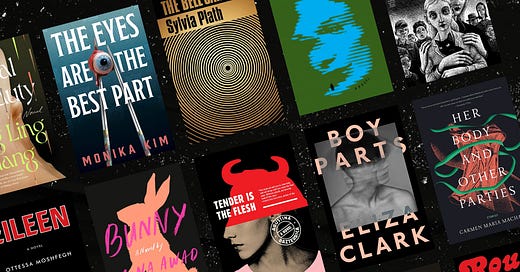



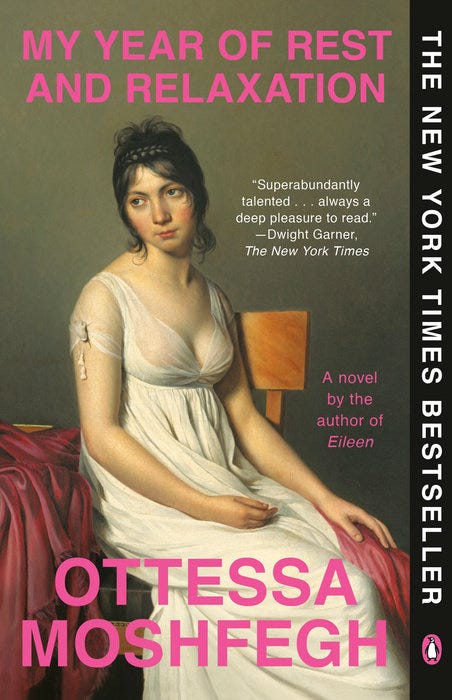
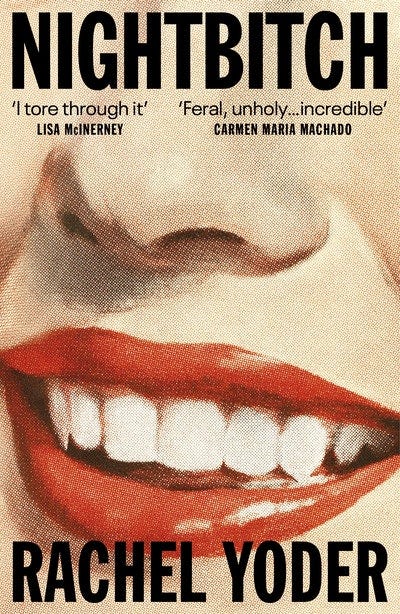
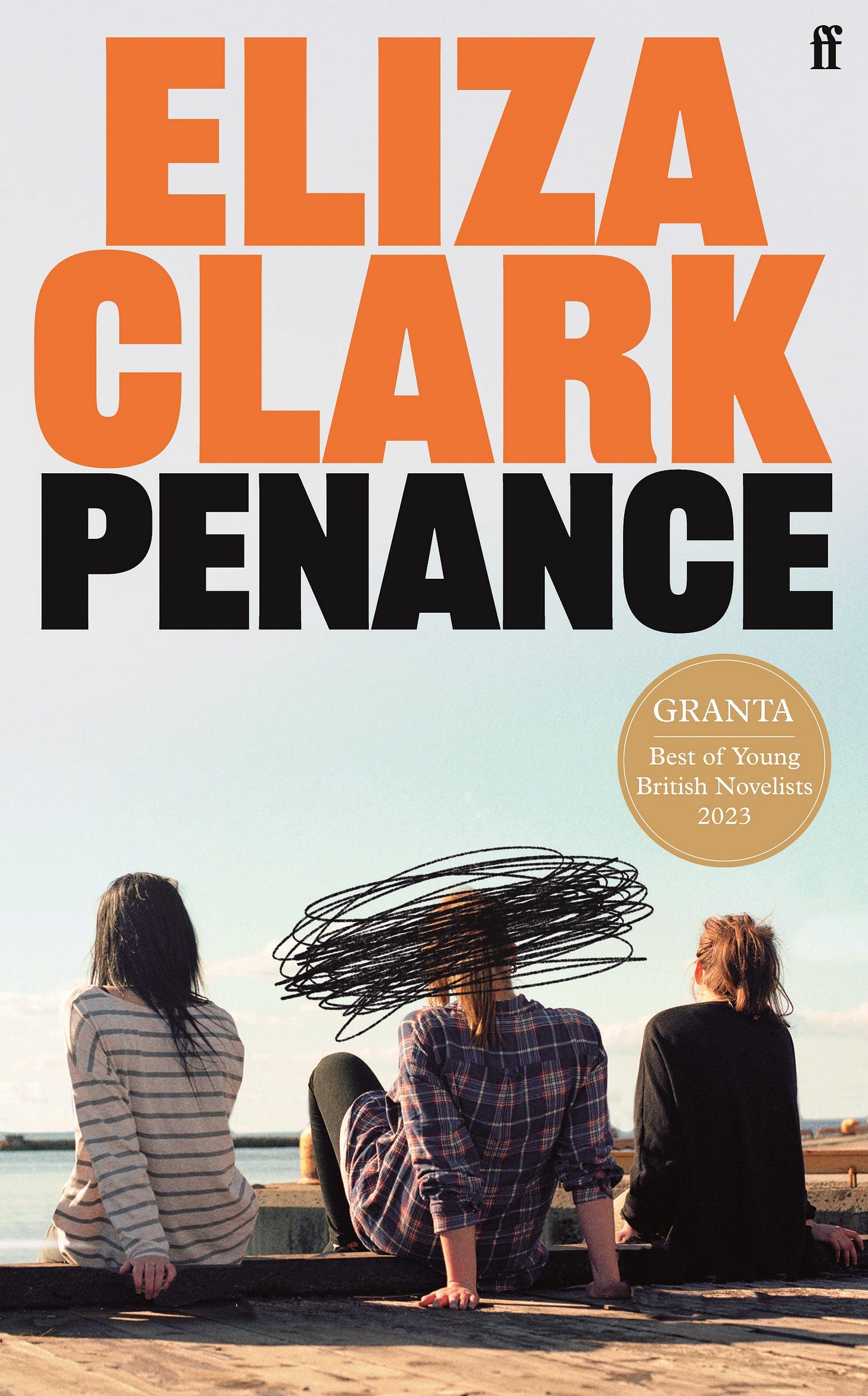
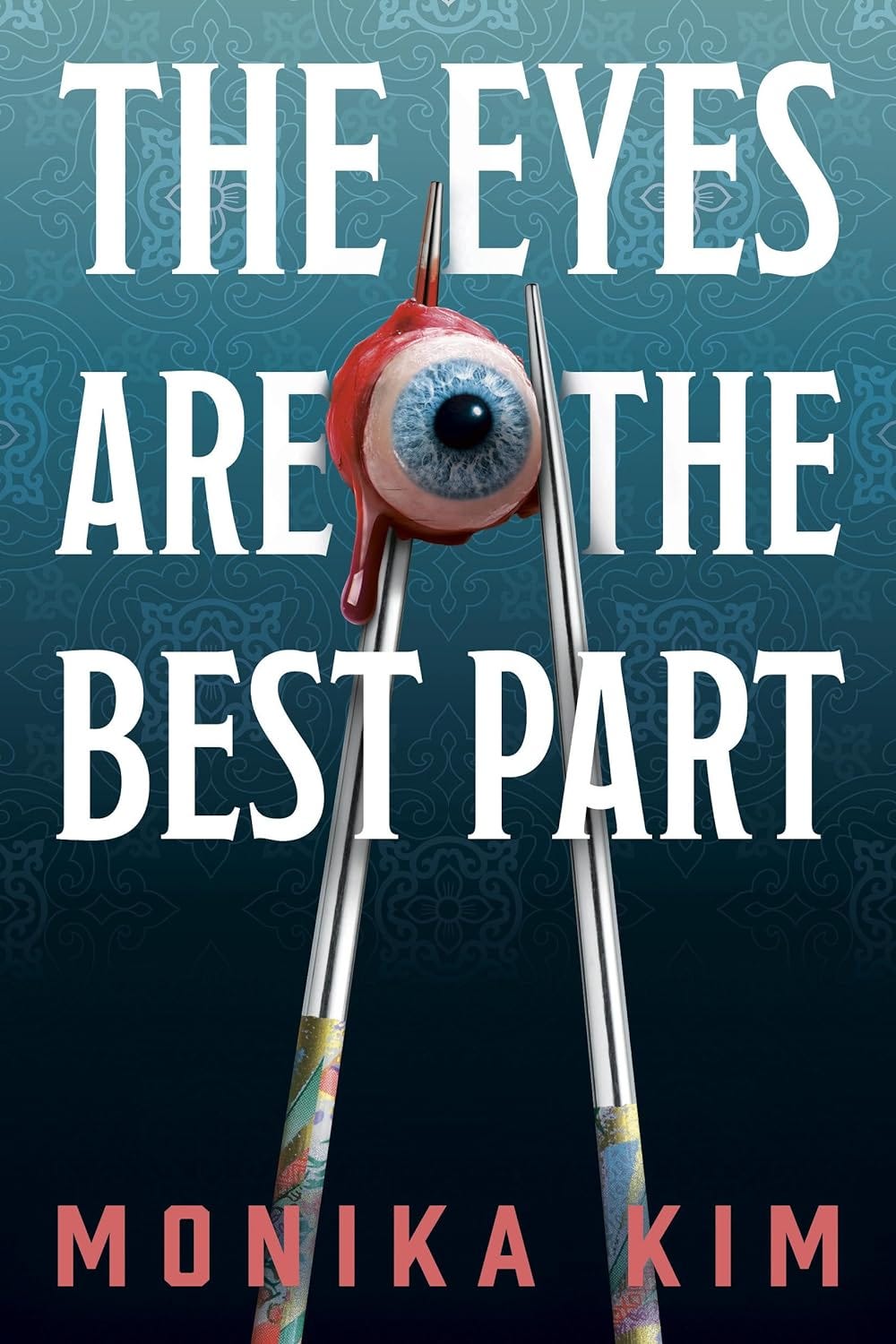

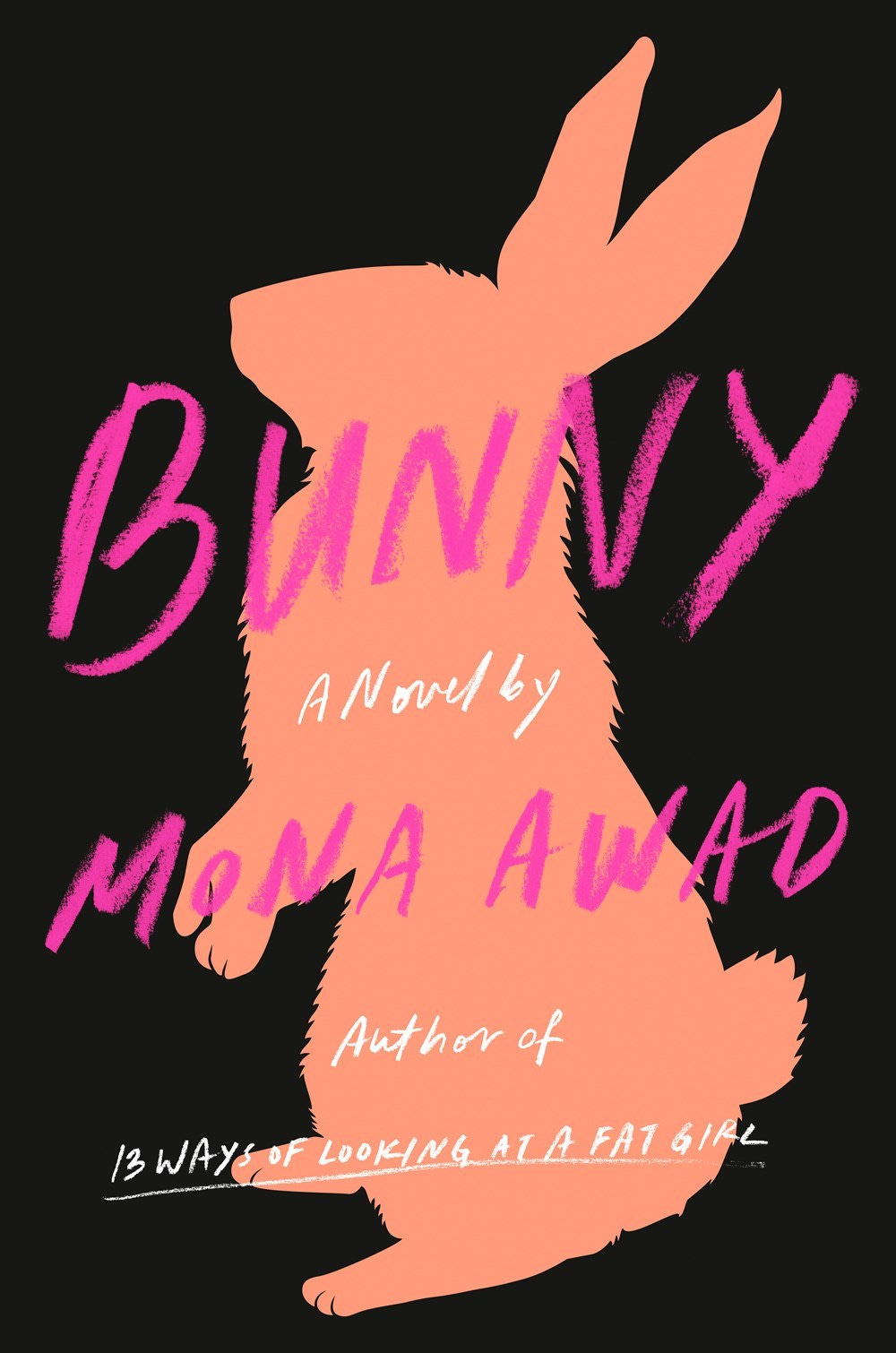
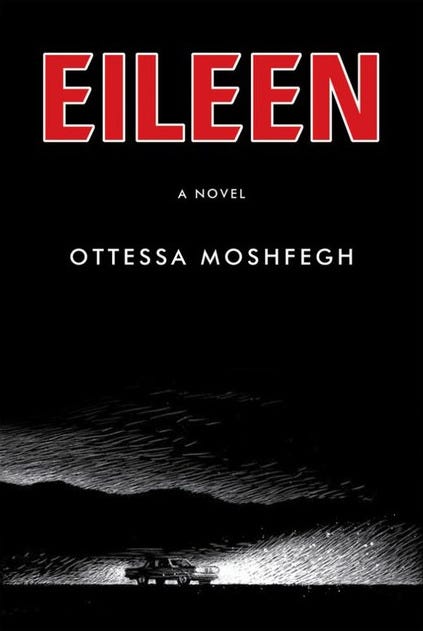
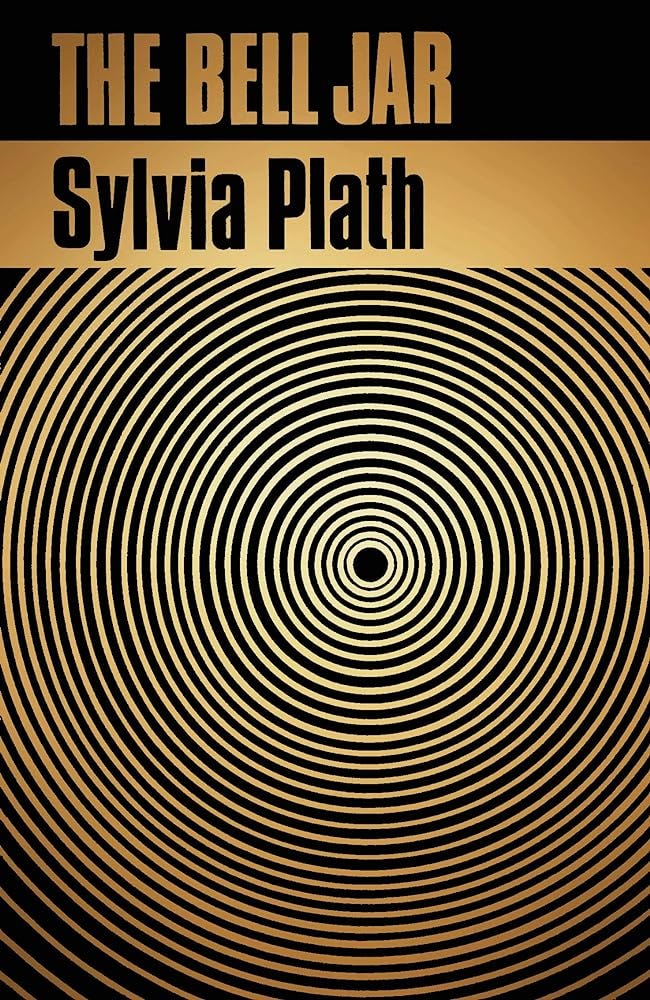

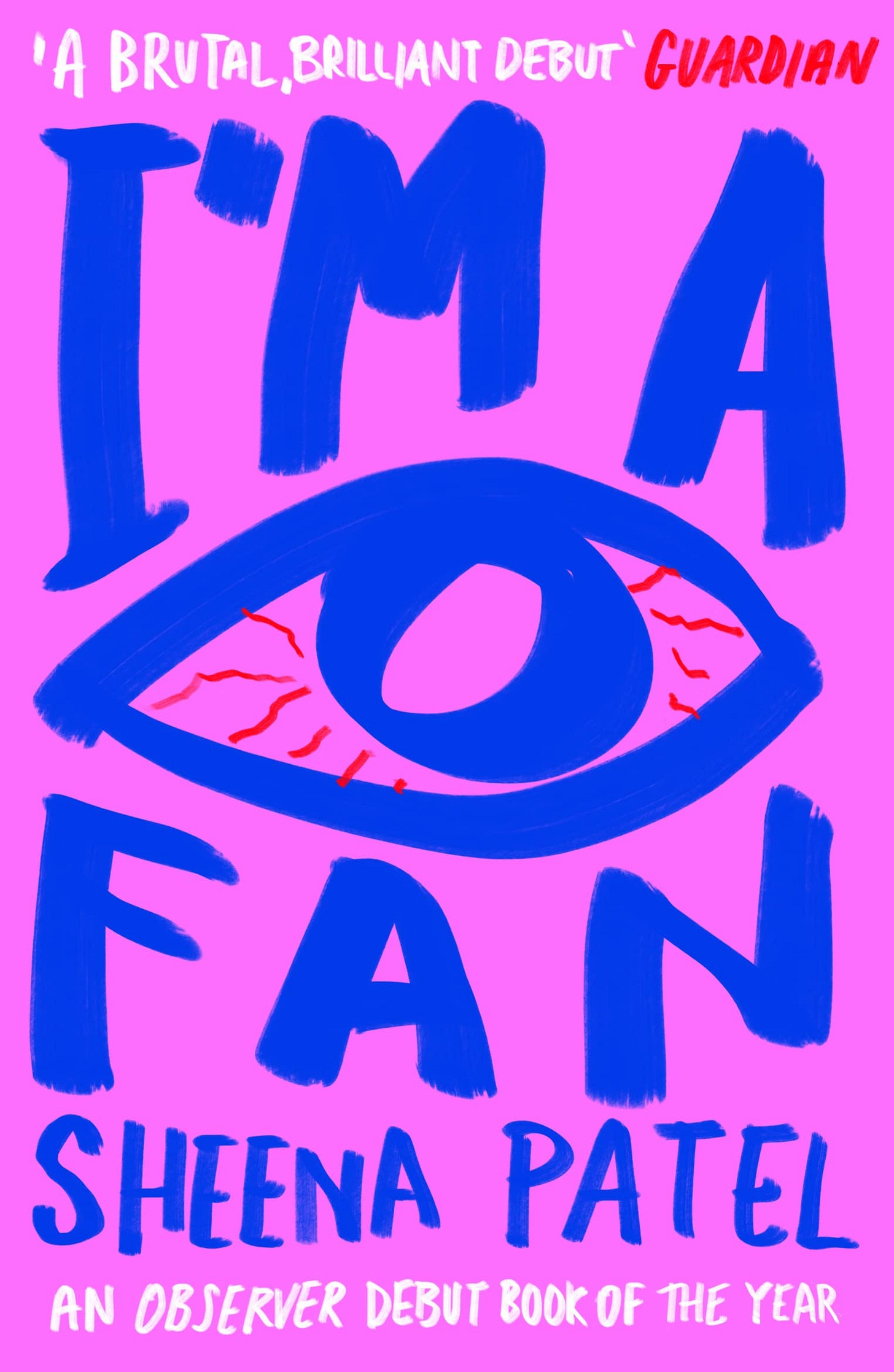
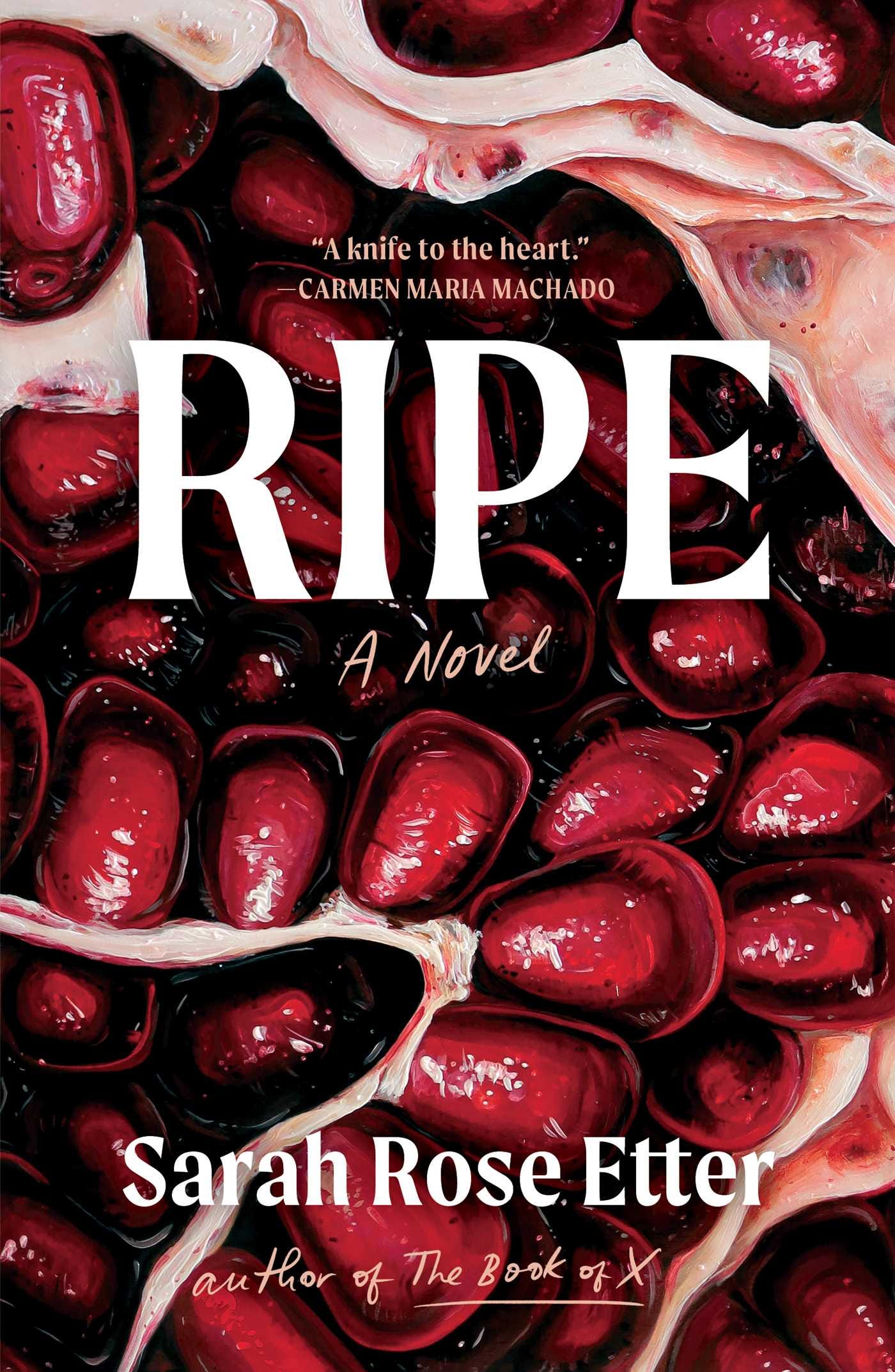
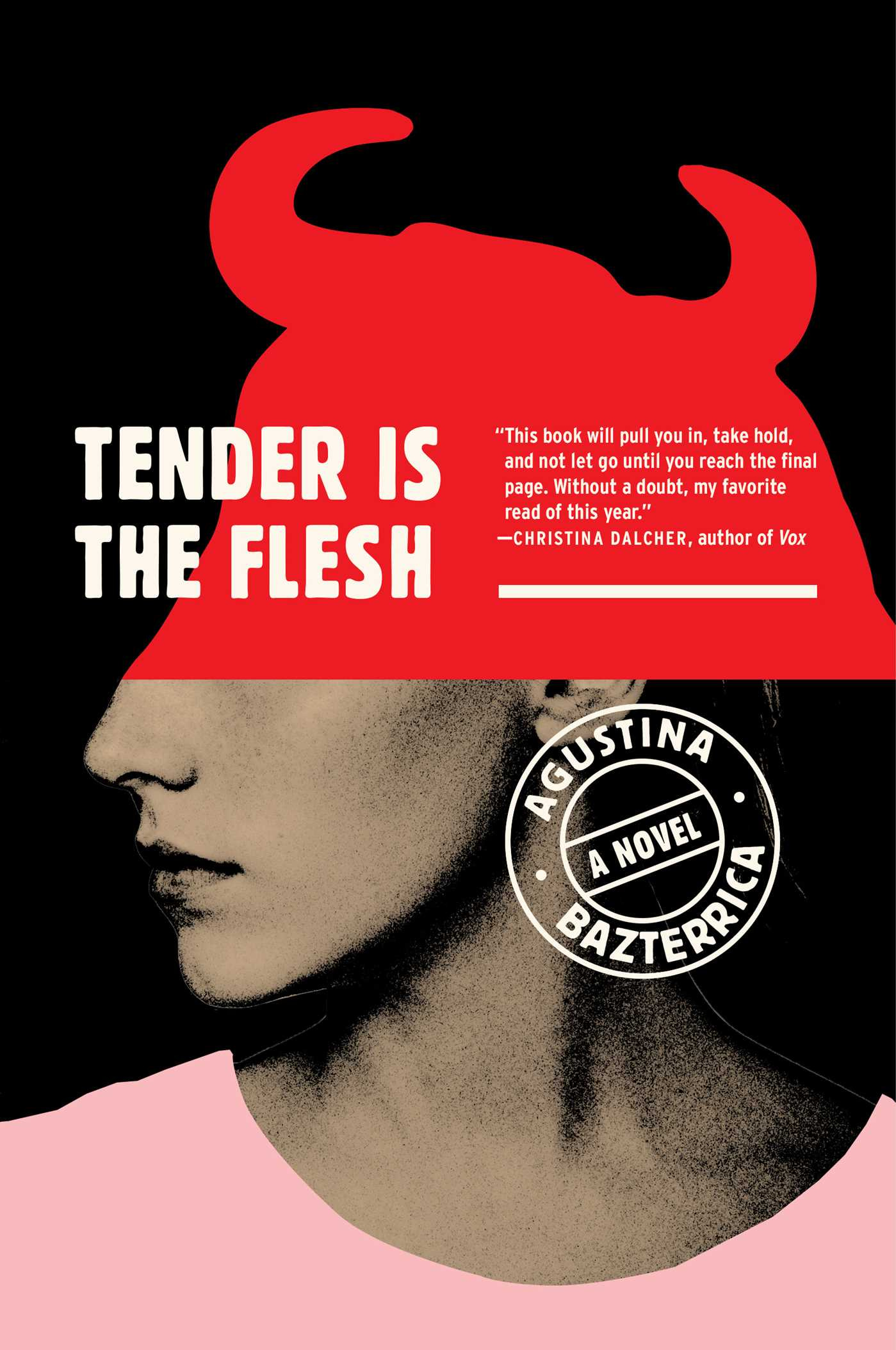
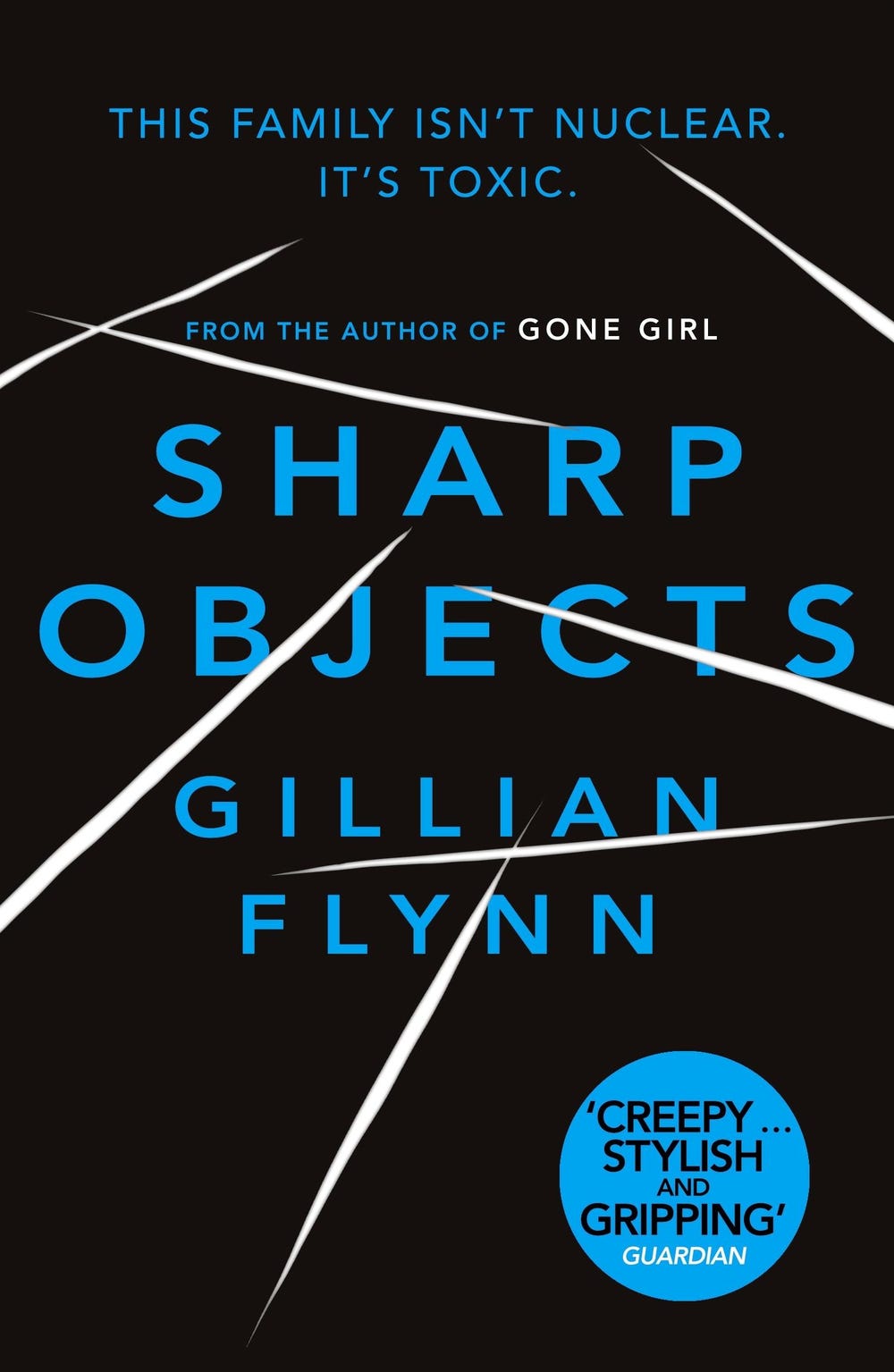
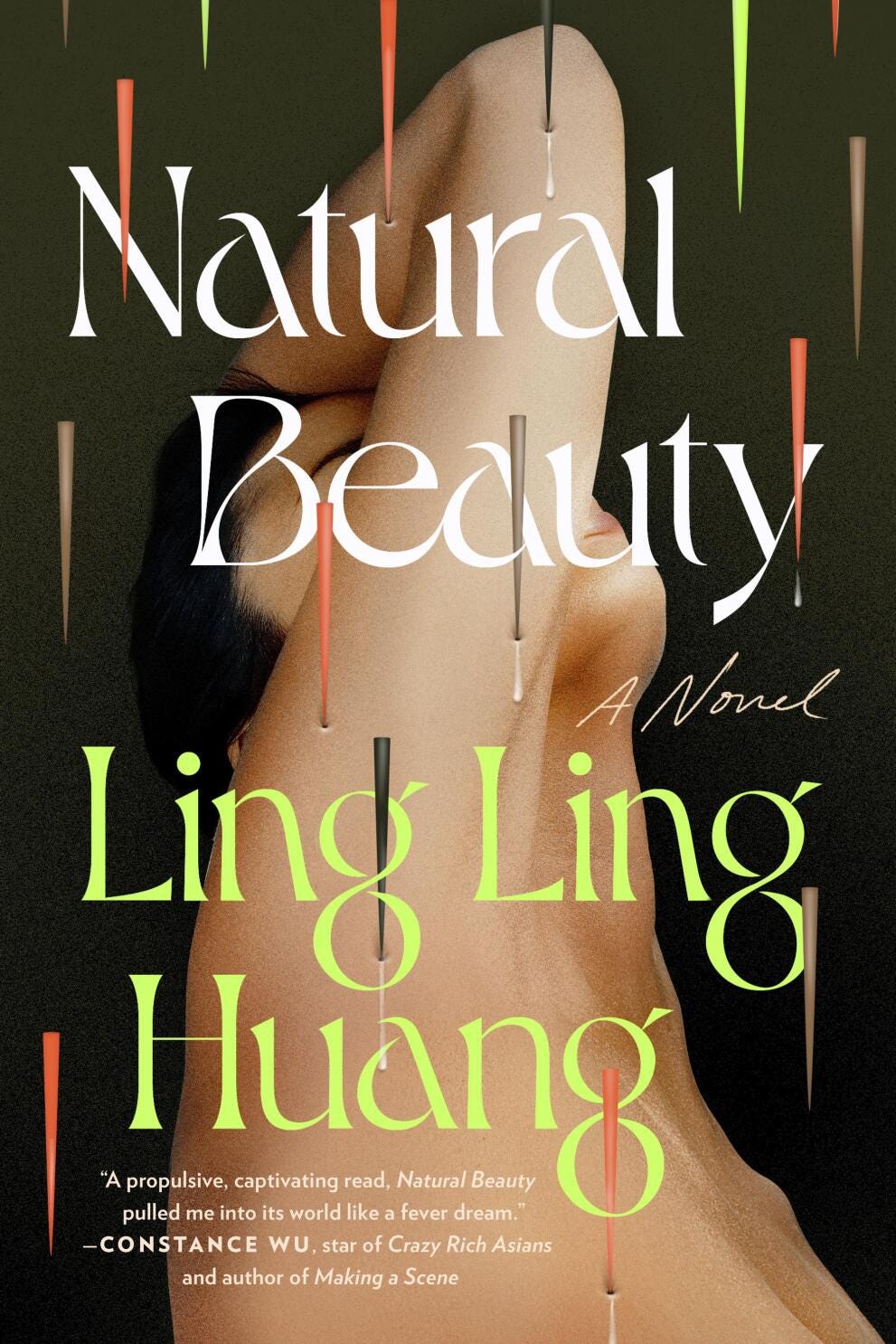
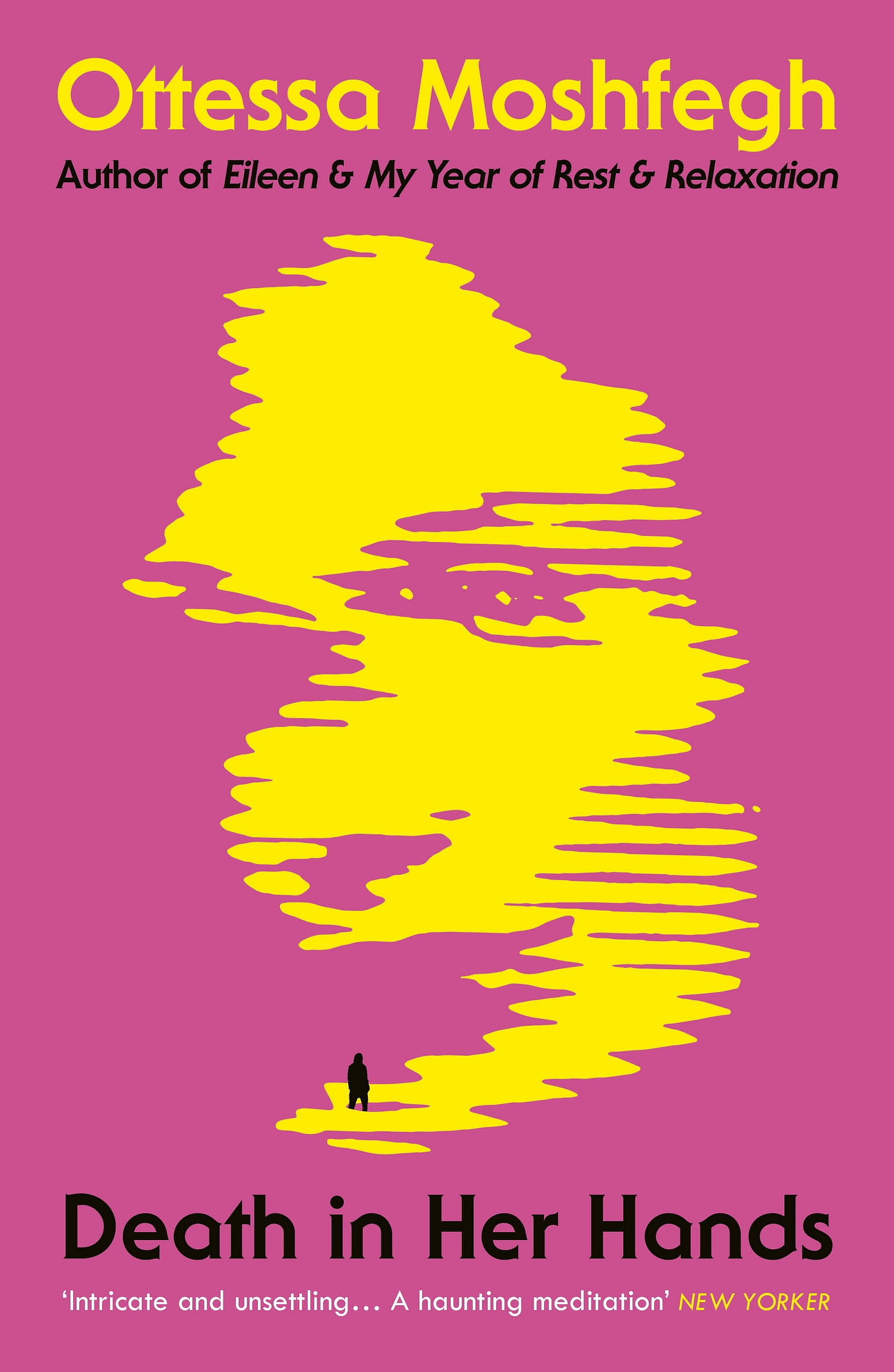
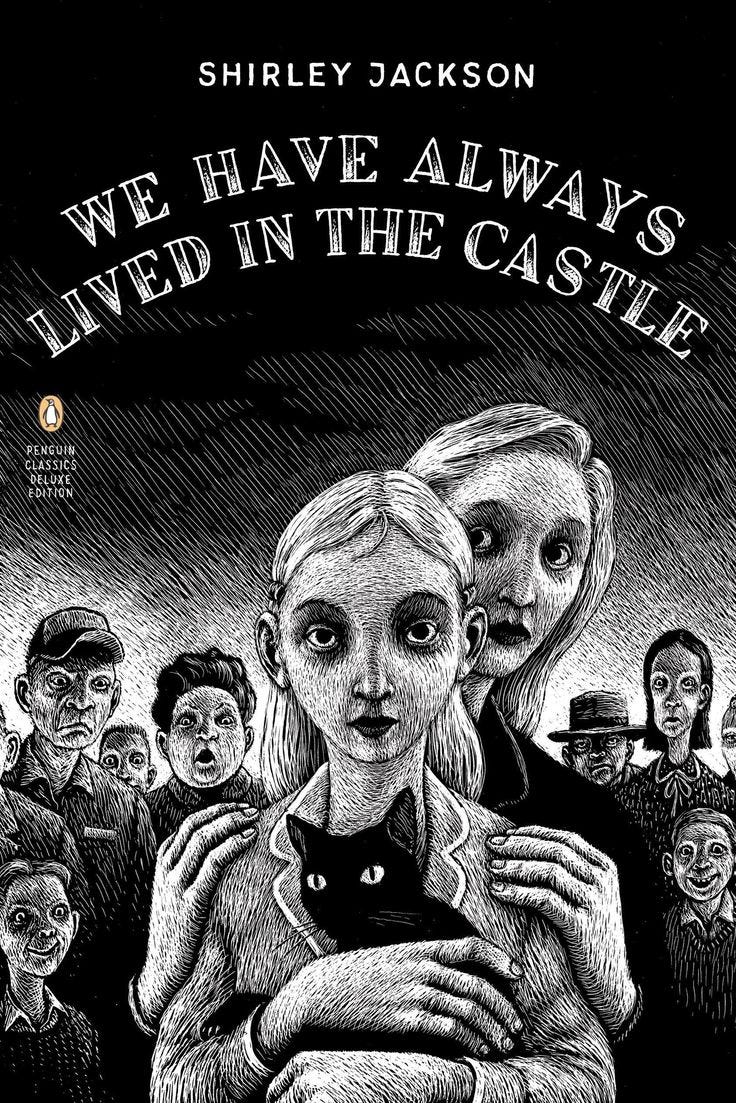

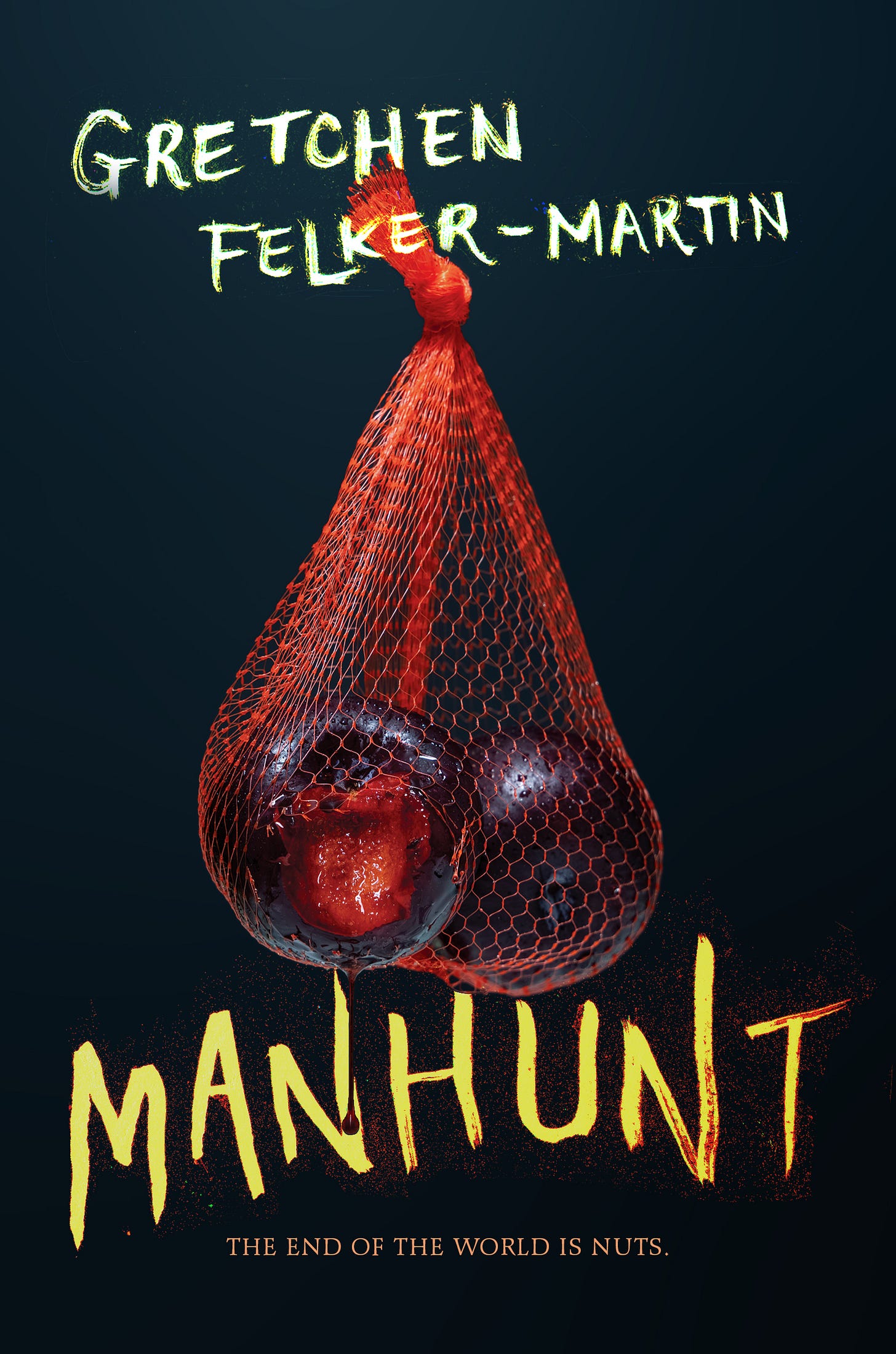
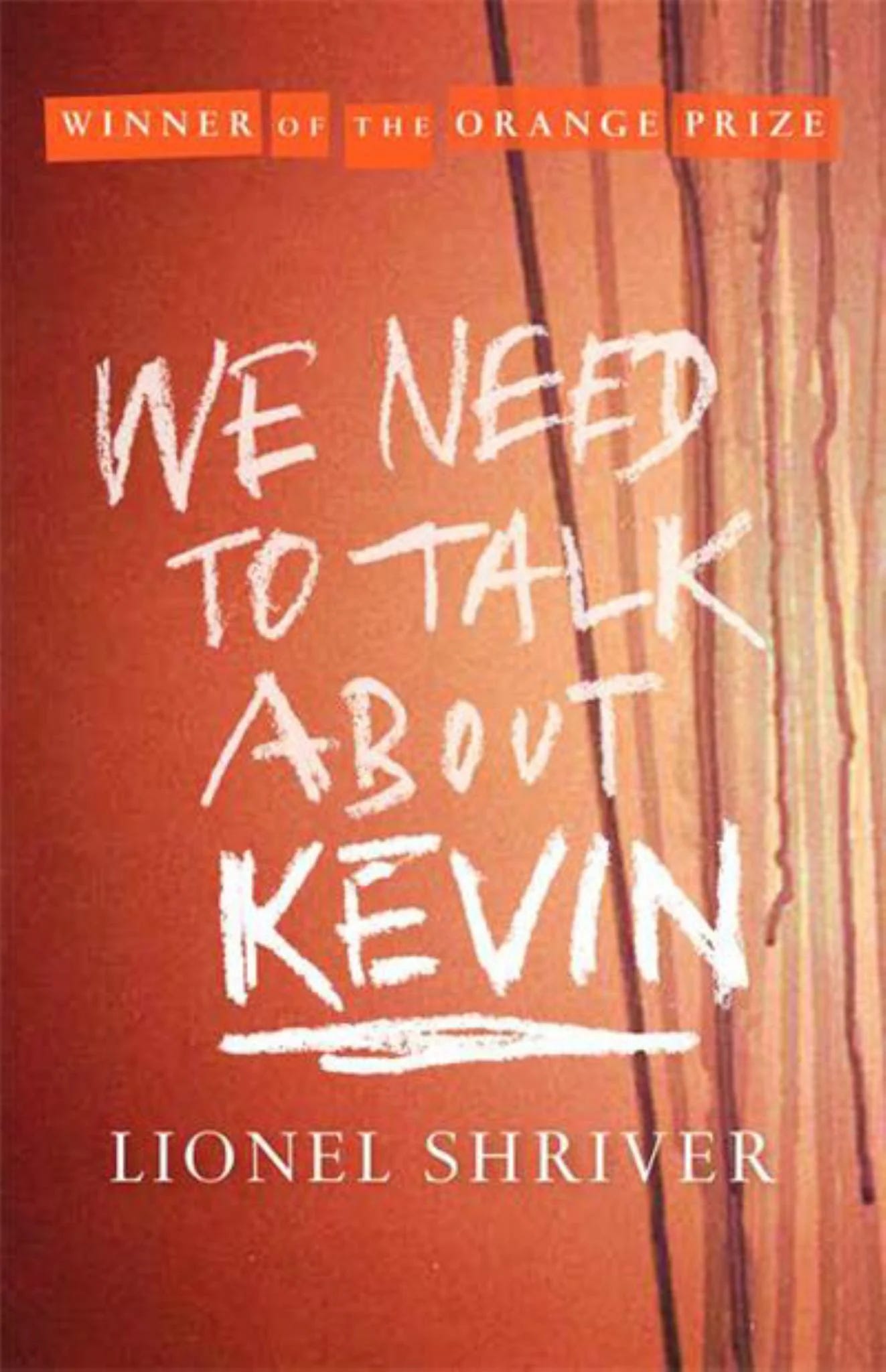
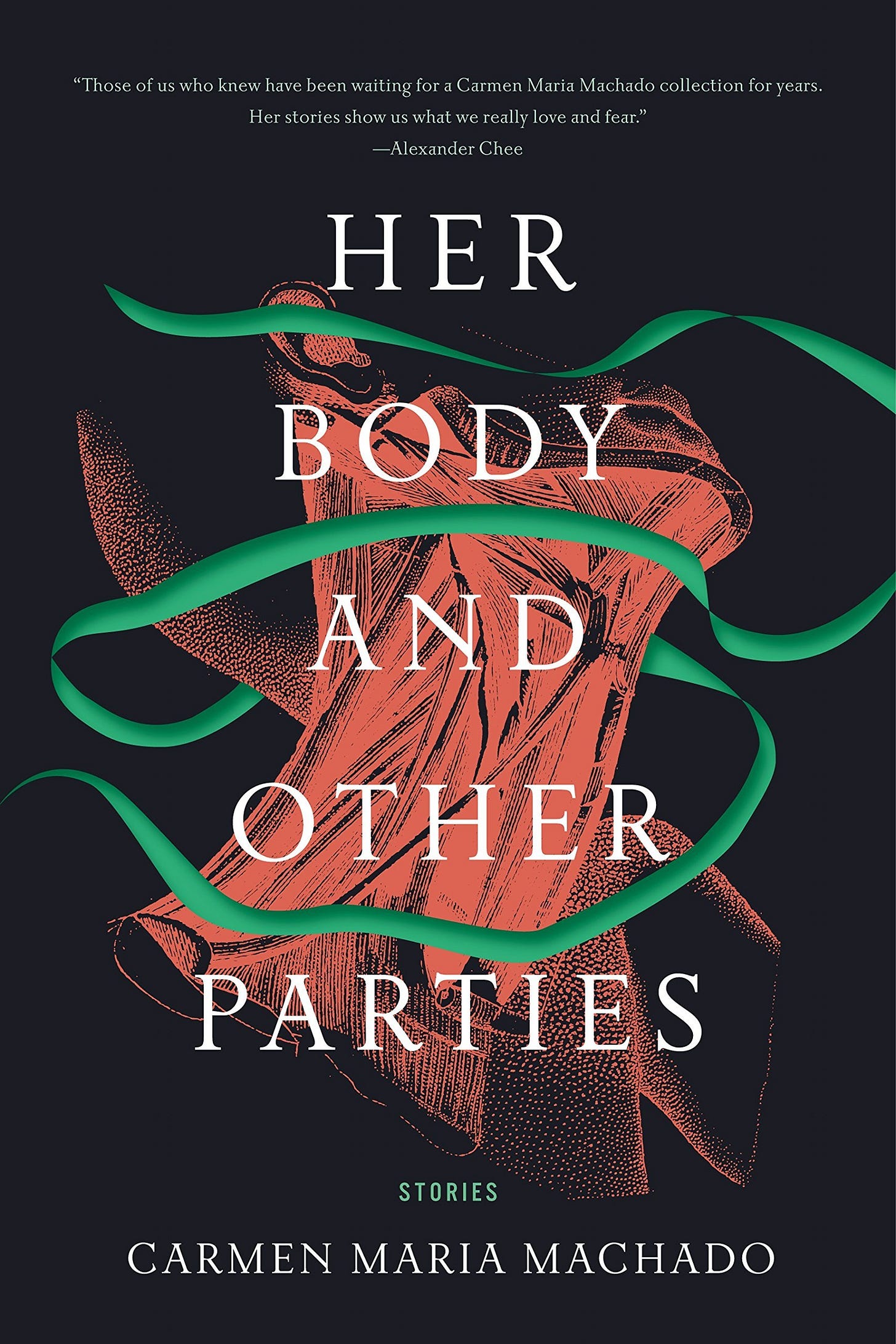
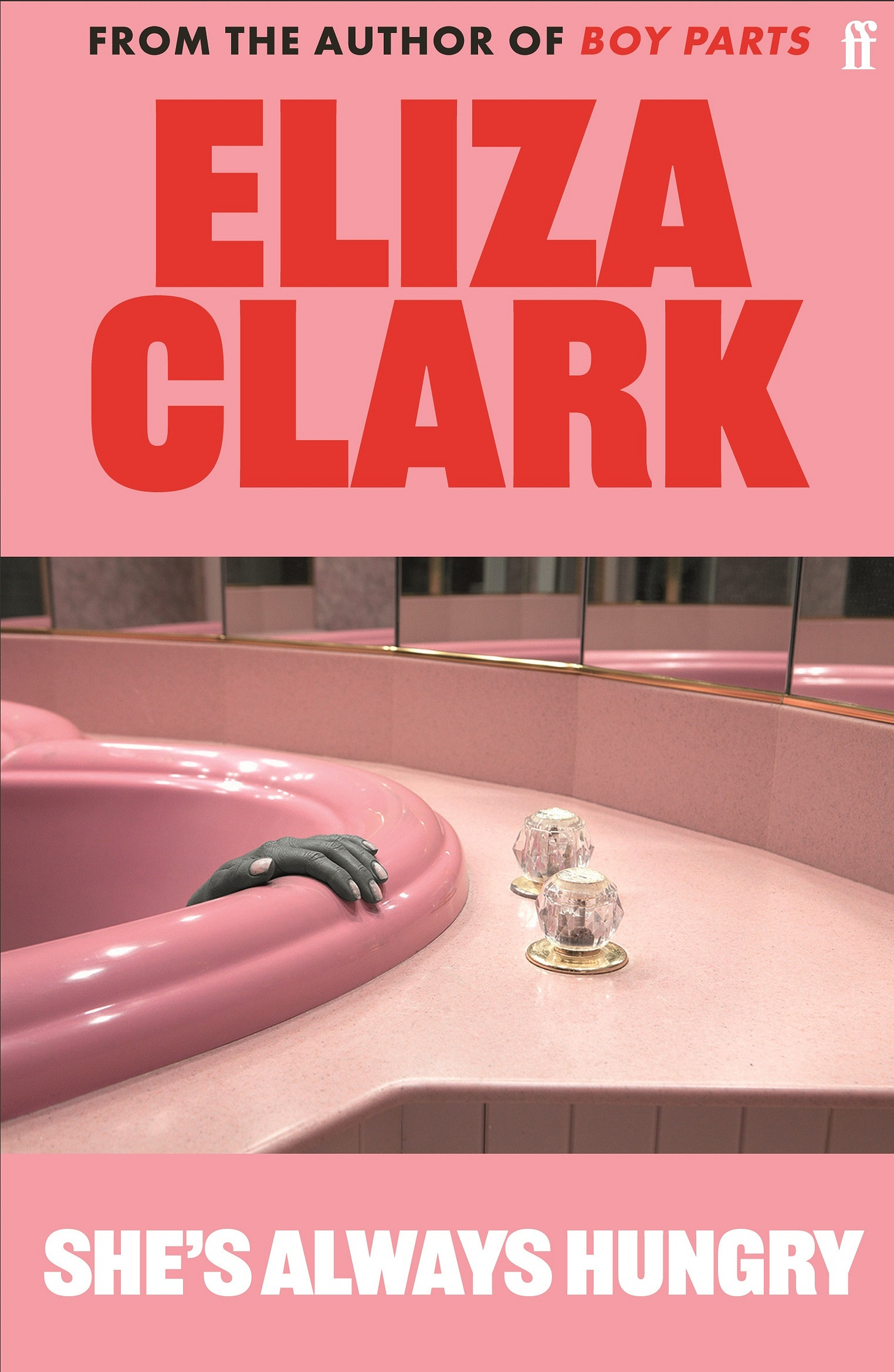
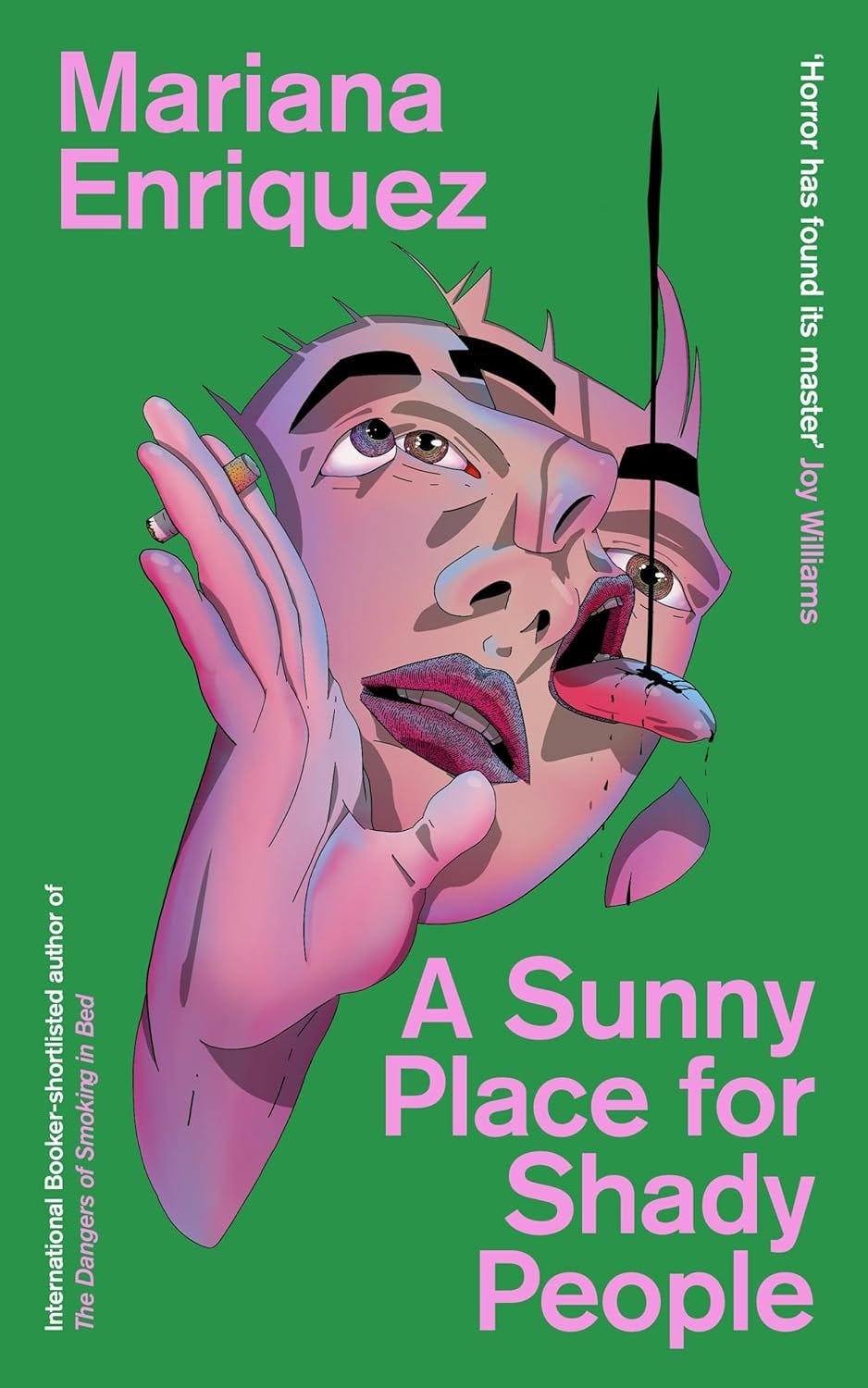
Okay I own so many of these but haven't read them yet, I'm putting them at the top of my TBR
Excited to dig into some of these! Literally just finished Deliver Me by Elle Nash a few minutes ago and feel like it would totally make this list!